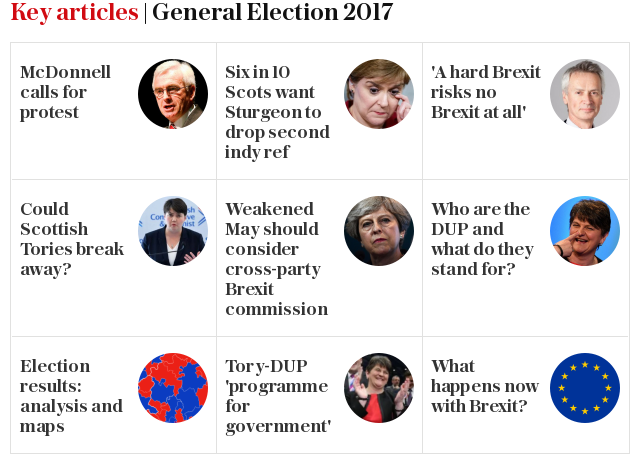Tax on homes 'to treble under Labour plans for Land Value Tax'

Council tax bills would treble for middle-class homeowners under Labour plans to introduce a so-called “garden tax” on the value of land, it was claimed last night.
The Labour manifesto contains plans for a Land Value Tax to replace council tax, which would hit people with gardens the hardest.
The manifesto contains no detail of how the tax would be applied, but the Conservatives claim tax on the the average family home would go up from £1,185 to £3,837 per year, an increase of £2,651 or 224 per cent.
Opponents of the tax say it would cause house prices to plummet, putting homeowners at risk of negative equity and forcing families to sell off their gardens to developers to lessen their tax burden.

Because the tax would also apply to agricultural land, it could have a knock-on effect of driving up food prices.
The policy was described as “nonsensical” by Boris Johnson, the Foreign Secretary, who said it would “bring misery to every single family in Britain”.
While council tax works by taxing the overall value of a property, Land Value Tax would impose an annual charge on the rental value of land, not counting any improvements such as houses built on it.
It would mean that a vacant plot in the middle of a row of houses would have the same value as the plots that had houses on them. Agricultural land would also be taxed in the same way.
Homeowners with gardens, as well as farmers, would see bills rise, while people living in flats without gardens would be likely to pay less.
The policy has been driven by the Labour Land Campaign, a working group praised by Jeremy Corbyn and John McDonnell, and is regarded by its supporters as a fairer way of taxing property.
The campaign proposes a “standard rate” of 3 per cent of the value of land, which would be applied to 55 per cent of a home’s value (based on the assumption that land accounts for 55 per cent of a property’s value). The tax would be levied on 100 per cent of the value of vacant plots.
The average house price in England in March 2017 was £232,530, meaning an annual tax bill of £3,837 based on a 3 per cent tax on 55 per cent of the value.
In Kensington and Chelsea, where the average home is worth £1.4m, town hall taxes would jump from £1,208 to £23,213, an increase of £22,005, or 1,821 per cent.
Mr McDonnell, the shadow chancellor, has said the tax will “raise the funds we need”.
The centre-left think tank the Institute for Public Policy Research, a favourite of Tony Blair, warned in a research paper on Land Value Tax that “there would be many losers” and it might become “a tax on gardens” and hit biodiversity because large gardens would be sold off to developers.
The IPPR also warned that the tax “might push some heavily mortgaged homeowners over the edge” and lead to repossessions.
The National Farmers’ Union has warned that by imposing land tax on agricultural land “it would simply increase the cost of UK food production with no benefit for shoppers”.

The Land Value Taxation Campaign, a pressure group set up in 1991, believes “land value owes nothing to individual effort and everything to the community at large. It belongs justly and uniquely to the community”.
Meanwhile the Labour Land Campaign says a drop in house prices would be “one of the long-term benefits of LVT”.
Boris Johnson said: “Jeremy Corbyn needs to hit ordinary working families with a bombshell of new taxes to pay for his reckless hard-left giveaways, and this lays bare the price we would all pay.
“It would wreck our economy, devastate farmers and increase the cost of food on the shelves.”
A Labour spokesman said: "This is desperate nonsense from the Tories. Labour has no such plans."

 Yahoo News
Yahoo News 
